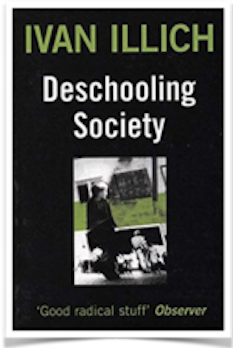Even in the Quietest Moments
 Referring to World War II, Winston Churchill is reported to have implored the British people to 'never waste a good crisis'. While on the surface it may seem somewhat mercenary, however, having now witnessed some of the rapid and innovative responses to deal with COVID-19 crisis across many sectors, particularly in education, his words may carry much truth today.
Referring to World War II, Winston Churchill is reported to have implored the British people to 'never waste a good crisis'. While on the surface it may seem somewhat mercenary, however, having now witnessed some of the rapid and innovative responses to deal with COVID-19 crisis across many sectors, particularly in education, his words may carry much truth today.
In 1975, as an avid follower of music (nothing has changed), it now seems serendipitous that one of my favourite artists in high school was Supertramp. Why? They just seemed unique at the time. Two of their albums appear to now carry somewhat prophetic names for what we are dealing with today. One titled 'Crisis? What Crisis? (1975) ' was named from a sketch that Rick Davies did in the waiting room of the studio, reflecting the stress they were under in just getting that album completed.
The other album, 'Even in the Quietest Moments (1977) ' is described by AllMusic as "elegant yet mildly absurd, witty but kind of obscure".
The concepts of crisis and obscurity may well and truly have come home to roost as we deal with the COVID-19 crisis via self-isolation. This period of crisis and quiet solitude may be the overdue catalyst for meaningful educational reform. There is a real opportunity for our society to emerge from COVID-19 with a different view on schools and the formal process of education. Let's face it, the current model was designed to deal with an industrial revolution, which wasn't exactly yesterday. I think it is fair to say that things have since moved on a touch since our current model of schooling was designed.
This is possibly the chance to revisit some of Ivan Illich's concepts in his 1971 book, DeSchooling Society. As he says, "School is the advertising agency which makes you believe that you need the society as it is."
In the challenging times we now face, we must question the accepted reality. Things are going wrong, and as a result rapid and creative answers are needed; the solution may well be found outside of our usual armoury of strategic solutions or thought processes.
So, what can we do as school leaders during this unusual time?
Stay calm
In a crisis, no-one wants to hear their leaders panicking. Leaders must try and separate themselves from the emotions of the day-to-day ups and downs in a crisis.
Identify and solve the pressing problem
What is fascinating is that under normal circumstances, you tend to spend more time trying to perfect a decision. In times of crisis, you do not always have the luxury of time on your side. During a crisis such as COVID-19, there are no shortages of people giving advice. It is imperative to deal as much as possible with facts, not opinion.
Seek advice
When things are normal, seeking advice is a sensible strategy. In a crisis, it is imperative, as unintended consequences are likely to have a more immediate impact. Just be aware however, that advice via consensus is not always the correct path. Avoid 'lowest common denominator' decision making.
Think strategically
Getting lost in the weeds and debating semantics is simply of no use during this time. As Covey demonstrates, get the big rocks in place first and the small ones will fall into place. Usually with strategy you are trying to seek the perfect path forward. At a time like this you simply have to make quicker decisions about the things that truly matter at the time.
Be authentic
A crisis is no time for grandstanding. Staff do not want to be second guessing what you are doing. The job of the leader is to try and reduce obscurity and increase assurity. Do not be scared to show your own vulnerability.
Act decisively
Scale of message, speed of decisions and the use of language are crucial during a crisis. Decisions in a crisis directly affect the confidence people have in you, thus influencing their trust in your current and future decisions.
Communication
Without doubt the most crucial element during a crisis. You can never communicate too much. Too little and people start guessing. It is imperative to keep everyone informed from the start. Admit what you do and do not know about the issue. Most importantly, explain why you have made a particular decision. Utilise all mediums as everyone has a preferred mode of communicating.
Build community
Leaders can help the people around them feel safe by strengthening community. Togetherness builds resolve and trust.
Demonstrate passion
During a crisis, we often get lost in looking for solutions. In order to deal with a crisis, we must remember that our employees have families and lives outside of work that are more important to them than anything else. We must ensure that our staff are key to the decisions we are making. This means showing empathy and treating each other with dignity. Michelle Borba (2016) in her book Unselfie, says 'We are all humans who share the same fears and concerns, and deserve to be treated with dignity.'
Envisage the long-term
Leading through a crisis requires taking the long view, as opposed to just dealing with what is in front of you. The leader has to try envisioning what comes next week, next month, and even next year in order to prepare the organisation for the changes ahead.
The one thing that does not change during such challenging times is the need to stay focused on what really matters for your organisation; in our case, the core values of integrity, service and stewardship. When the chips are down, one's foundational values become even more important as a bedrock from which to operate, and ultimately return from, stronger and even more resilient.
What has been confirmed about schools as a result of COVID-19?
Society has always understood, whether or not it has always been appreciated by some, that schools are not just there to engage in the transmission of content; the reality is that we are critical agents of socialisation and stability. Possibly no more than at any other time has this reality hit the forefront of everyone's mind when suddenly the concept of home schooling is not quite as easy as some thought.
So just how critical, multifaceted and valuable are schools to the normal functioning of a society? Schools already do and will continue to play a number of ever increasingly significant roles as places of:
Learning - where the balance between wisdom and knowledge is addressed.
Worship – in an ever increasing secular society, where many religious institutions are seen to have let the community down, schools will be seen as places that can be trusted to impart social, religious and cultural mores.
Community Service – schools play a major part in service learning and helping those who face hardship and disadvantage.
Stability and Reliability - schools are the cornerstone of society: where other organisations come and go, schools remain within the context of the era.
Socialisation – schools are community minded organisations allowing students to communicate, influence and articulate their values and beliefs and develop socialisation skills. Suddenly we are all realising that a world that is comprised solely online is not the ideal. Why are parents and the wider community finding the current situation of school closures difficult? It is due to social isolation, not lack of information or content.
So where does this leave us moving forward? Our role as imparters of knowledge and wisdom must continue. In an ever increasingly complex and rapidly changing world, however, maybe we need to free up some of the time allocated to subject content to allow for an even greater focus on developing the social and emotional skills and strategies for our young people. Let's face it, if you are going to wager on which will win out most times, EQ will trump IQ when it really matters.
In an occasional paper from the Centre for Strategic Education entitled 'Leading for social cohesion: The key role of schools', Wilkinson et al (2020) rightly point out that "it is in the daily encounters of playgrounds, classrooms, corridors and assemblies that children and young people's social values and attitude, beliefs and stereotypes are shaped, reproduced and reinforced; or alternatively challenged and interrogated."
None of the above are delivered by a ranking metric or a league table. Now is the time to re-envision what really matters in our schools. Hopefully, the education sector will heed Churchill's words and be the one to 'never waste a good crisis'.
 Referring to World War II, Winston Churchill is reported to have implored the British people to 'never waste a good crisis'. While on the surface it may seem somewhat mercenary, however, having now witnessed some of the rapid and innovative responses to deal with COVID-19 crisis across many sectors, particularly in education, his words may carry much truth today.
Referring to World War II, Winston Churchill is reported to have implored the British people to 'never waste a good crisis'. While on the surface it may seem somewhat mercenary, however, having now witnessed some of the rapid and innovative responses to deal with COVID-19 crisis across many sectors, particularly in education, his words may carry much truth today. Two of their albums appear to now carry somewhat prophetic names for what we are dealing with today. One titled 'Crisis? What Crisis? (1975) ' was named from a sketch that Rick Davies did in the waiting room of the studio, reflecting the stress they were under in just getting that album completed.
Two of their albums appear to now carry somewhat prophetic names for what we are dealing with today. One titled 'Crisis? What Crisis? (1975) ' was named from a sketch that Rick Davies did in the waiting room of the studio, reflecting the stress they were under in just getting that album completed. The other album, 'Even in the Quietest Moments (1977) ' is described by AllMusic as "elegant yet mildly absurd, witty but kind of obscure".
The other album, 'Even in the Quietest Moments (1977) ' is described by AllMusic as "elegant yet mildly absurd, witty but kind of obscure".

 So where does this leave us moving forward? Our role as imparters of knowledge and wisdom must continue. In an ever increasingly complex and rapidly changing world, however, maybe we need to free up some of the time allocated to subject content to allow for an even greater focus on developing the social and emotional skills and strategies for our young people. Let's face it, if you are going to wager on which will win out most times, EQ will trump IQ when it really matters.
So where does this leave us moving forward? Our role as imparters of knowledge and wisdom must continue. In an ever increasingly complex and rapidly changing world, however, maybe we need to free up some of the time allocated to subject content to allow for an even greater focus on developing the social and emotional skills and strategies for our young people. Let's face it, if you are going to wager on which will win out most times, EQ will trump IQ when it really matters.